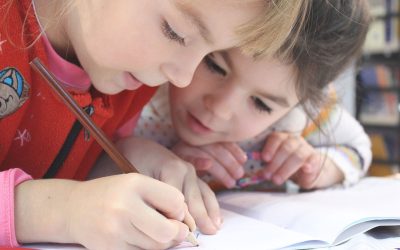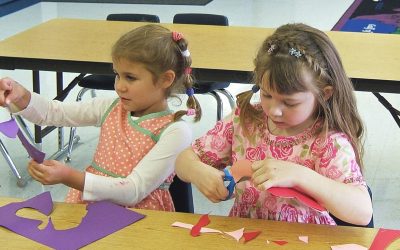“The earliest experiences and relationships are formative and help little ones develop neural connections, foundational competencies, and interactive skills.”
~ ABCs of Raising Smarter Kids, p. 14
Many parents wonder how to ensure their young children have the best possible learning opportunities. Here are 8 questions and answers for parents to consider.
1. What does the best learning environment look like?
A learning environment can be any place where a person can discover something new. However, the most conducive settings are those that are safe, enabling, comfortable, and challenging. These are places where children’s questions and concerns are honored, where they feel empowered to be creative and to try different ways of learning, where they can get assistance if need be, and where, most importantly, they can play. Indeed, play (preferably unstructured and outside) enables children to learn, socialize, share, and develop skill sets. Play is the bedrock upon which all learning is built.
2. Why do my child’s interests and behaviors keep changing?
Learning needs, attitudes, and preferences change across a child’s development. Cognitive development can unfold in surprising and remarkable directions as kids mature and actively explore their world. Moreover, every home, school, family circle, neighborhood, social milieu, and learning environment has its own dynamic and mix of individuals, expectations, advantages, and drawbacks. Plus, many people of various ages and experiential backgrounds are involved in a child’s day-to-day life. Thus, a child’s interests and learning opportunities are always in flux.
3. How can parents fortify family support systems?
The best nurturing happens in the flow of daily life. Different opportunities and activities may benefit family members at different times, ages, or stages of development. So, parents may have to balance their time, resources, and attention accordingly. It’s never too early to teach children to be respectful of others within the family and beyond—including appreciating variations in people’s interests, personal attributes, and capabilities.
4. What are three top tips for parents seeking to nurture children’s learning?
i. Engage in active listening and observing. Heed what children say and do and sometimes do not say and do. Don’t just listen to respond; listen to understand.
ii. Encourage children’s efforts, not just their achievements.
iii. Demonstrate a love of learning—including the kinds of dispositions, resilience, and actions that will, in turn, serve young children well in different situations and contexts. When children see their parents enjoying learning processes such as reading, exchanging ideas, and problem-solving, it conveys a positive message.
5. What kinds of support networks should parents build?
…








